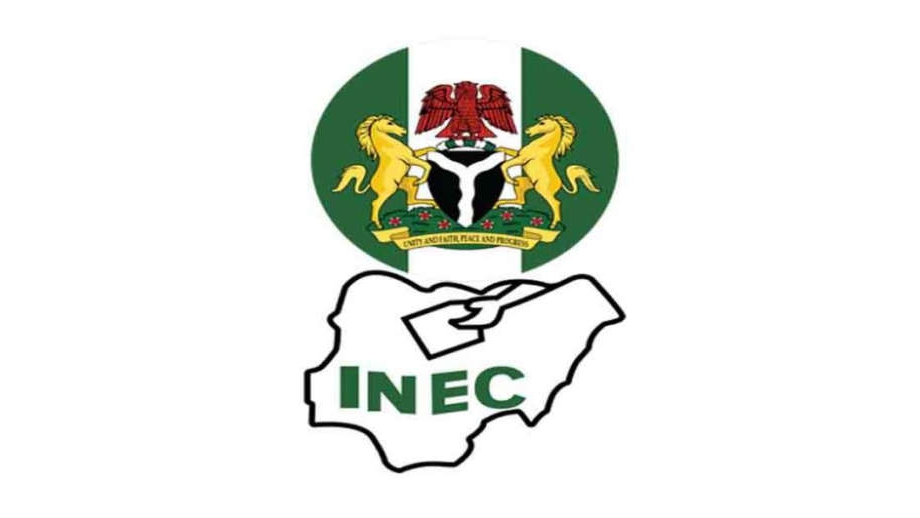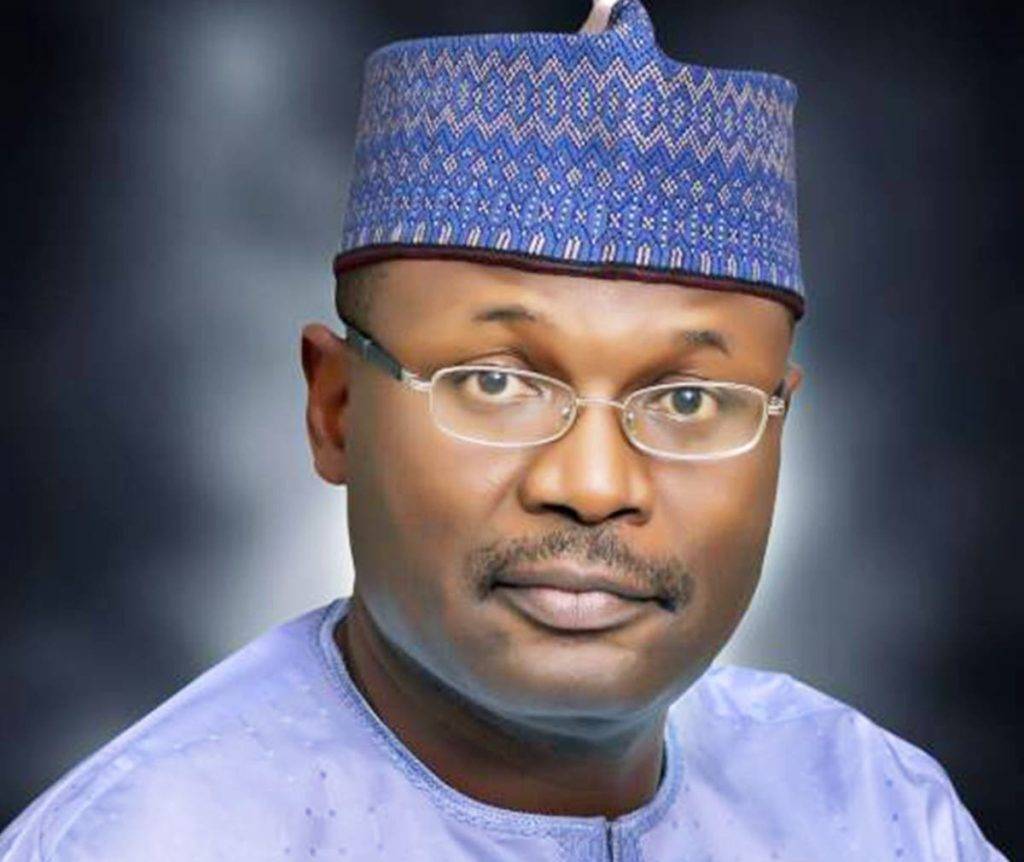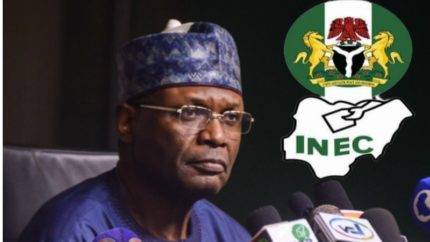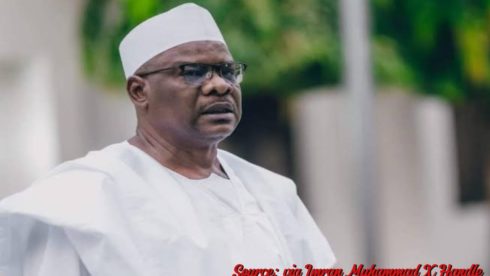The Independent National Electoral Commission (INEC) is boldly rejecting the N40 billion budget allocation, asserting that it falls short of meeting the multifaceted needs of the electoral body. During a recent budget defense meeting presided over by Alli Sharafadeen Abiodun, INEC Chairman Prof. Mahmood Yakubu voiced apprehensions, emphasizing that the allocated funds are barely sufficient to cover the personal costs of the commission’s workforce.
This leaves a glaring deficit for critical areas such as capital investments, electoral expenses, and overheads. INEC’s stance raises crucial concerns about the adequacy of financial resources allocated for ensuring a smooth electoral process, spotlighting potential challenges that could impact the integrity and effectiveness of future elections.
Navigating Challenges: INEC’s Struggle with Funding and Implications for Electoral Integrity
In a candid revelation, Prof. Yakubu shed light on the financial constraints plaguing the Independent National Electoral Commission (INEC), attributing it to the 40 percent peculiar allowance imposed by the Federal Government and the escalating Duty Tour Allowance (DTA) costs. This has driven INEC’s wage bill to a staggering N36.5 billion, leaving a meager N3.5 billion for essential operations.
This budgetary shortfall poses a grave risk to the commission’s vital functions, particularly with the upcoming 2024 off-season governorship elections and National Assembly bye elections hanging in the balance. The inadequacy of the allocated funds threatens to undermine the democratic process, casting shadows over the integrity of these critical electoral events. INEC’s ability to ensure a fair and transparent electoral landscape may be compromised, demanding urgent attention to secure the foundation of democratic governance.

Staff Welfare as Priority
In a pivotal address to the Senate Committee on INEC, Mahmood Yakubu underscores the paramount importance of prioritizing staff welfare within the electoral commission. By delineating the comprehensive approach to employee well-being, Yakubu elucidates the intricacies of associated costs, encompassing social contributions, the National Health Insurance Scheme (NHIS), and the employees’ compensation scheme. This strategic emphasis on staff welfare not only aligns with the commission’s ethical commitment but also acknowledges the inherent link between adequate funding for personnel and the seamless execution of crucial electoral processes.
Yakubu’s poignant warning to the Senate Committee further amplifies the gravity of the matter. He cautions that any shortfall in funds allocated to staff welfare would extend beyond mere logistical concerns, directly impacting pivotal electoral activities. The ripple effect, as highlighted by Yakubu, encompasses potential disruptions to essential functions such as continuous voter registration and the monitoring of party primaries. In positioning staff welfare as a linchpin for the effective functioning of the electoral process, Yakubu not only reinforces the commission’s dedication to ethical practices but also highlights the intrinsic connection between human rights considerations and the integrity of democratic proceedings.
Potential Impact on Specific Constituency Elections
In a critical address, the INEC chairman highlighted the imminent threat posed by the budget shortfall to specific bye constituency elections in regions such as Edo, Ondo, Ebonyi South, Yobe East, Ondo State, Kebbi State, Sokoto State, and Rivers State. Emphasizing the gravity of the situation, he urged lawmakers to delve into a comprehensive assessment of the broader implications this shortfall could have on the democratic processes within these constituencies. This call to action is not merely a plea for financial support but an urgent recognition of the potential disruption to the democratic fabric of these vital electoral regions.
The chairman’s plea goes beyond a mere financial appeal; it serves as a crucial rallying cry for lawmakers to safeguard the democratic processes in vulnerable constituencies. Understanding that the repercussions extend far beyond a mere budgetary concern, he stressed the need for a strategic and timely intervention to mitigate any adverse effects on the electoral landscape. As the spotlight intensifies on constituencies like Edo, Ondo, Ebonyi South, Yobe East, Ondo State, Kebbi State, Sokoto State, and Rivers State, the chairman’s words echo a call for proactive measures that transcend the immediate budgetary deficit, aiming to fortify the democratic foundations of these key electoral regions.

INEC’s N89 Billion Proposal: A Comprehensive Analysis of Urgent Needs
In a noteworthy move, the Independent National Electoral Commission (INEC) has presented a comprehensive proposal seeking N89 billion in response to the initial N40 billion allocation. This detailed breakdown, crucial for understanding the commission’s financial requirements, emphasizes the inadequacy of the originally proposed N40 billion. Prof. Yakubu, at the forefront of this request, sheds light on the intricacies of the 2023 budget, which was initially set at N68 billion, creating a substantial deficit of N21 billion. The submission meticulously outlines the specific areas where the additional funds are imperative, providing transparency into how the increased budget would be allocated to fortify the efficient operation of the electoral body.
The submitted N89 billion proposal by INEC goes beyond a mere financial request; it serves as a vital document articulating the detailed necessities for the upcoming electoral activities. Prof. Yakubu’s clarification on the budget discrepancy underscores the critical nature of securing adequate funding for the electoral process. The breakdown within the proposal offers a granular view of the allocation strategy, ensuring a transparent communication of how the funds would be distributed to address INEC’s specific operational requirements. This meticulous breakdown not only seeks financial support but also establishes a foundation for accountability and efficiency in the electoral process, emphasizing the significance of meeting the N89 billion budget for a seamlessly conducted 2023 election.
Urgent Action Needed
In the throes of the ongoing budgetary debate, the 2024 Elections teeter on the precipice of uncertainty, demanding immediate attention. The Independent National Electoral Commission (INEC) sounds a resounding alarm, emphasizing the pressing necessity to bridge the financial deficit to avert potential disturbances that could compromise the forthcoming elections. As the deliberations unfold, the urgency magnifies, with INEC underscoring the potential jeopardy faced by governorship and bye elections. This explicit warning heightens the imperative for swift and decisive action to fortify the integrity of Nigeria’s democratic framework against impending threats.
The delicate balance of the 2024 Elections necessitates a coherent and expeditious response to address the financial gaps looming over the electoral process. INEC’s emphatic stance on the vulnerability of governorship and bye elections serves as a clarion call for stakeholders to rally together in proactive measures. Swift and effective resolution of the budgetary concerns emerges as the linchpin in preserving the sanctity of Nigeria’s democratic traditions. Urgent action, underscored by INEC’s warnings, becomes not just a fiscal imperative but a pivotal safeguard ensuring that the 2024 elections unfold seamlessly, upholding the essence of democracy in the nation.
Table of Contents
Discover more from OGM News NG
Subscribe to get the latest posts sent to your email.













